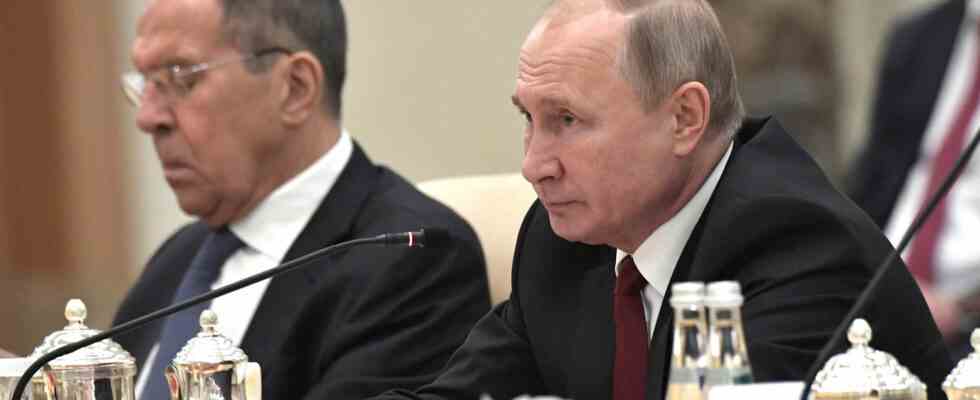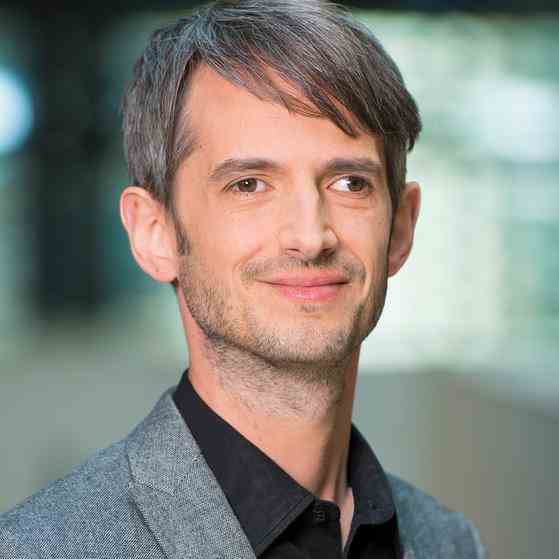Status: 01/16/2023 08:45 a.m
At the International Criminal Court in The Hague, Foreign Minister Baerbock is exploring whether and how President Putin can be held accountable for the war. Ex-UN judge Schomburg thinks that’s possible.
Wolfgang Schomburg has experienced a lot: “As a rule, they were very pleasant people.” You rarely see the crimes of war criminals, he says. Schomburg was the first German judge to participate in international criminal courts. For seven years he worked at the UN special tribunals dealing with war crimes in the former Yugoslavia and the genocide in Rwanda.
In the end, high-ranking officials – such as former Serbian President Slobodan Milošević – also came to court, even if at the beginning one did not necessarily expect that it would work, says Schomburg,
High expectation among Ukrainians
That’s why the former UN judge considers it in conversation with the tagesschau future podcast accepted not impossible that one day Vladimir Putin will have to answer to an international court for what he and his troops have done in Ukraine.
In any case, the Ukrainians would follow such a process with huge expectations. Tetiana Goncharuk, who looks after war refugees in Berlin, knows this from many conversations with victims and their relatives: “I was surprised that the children also said so clearly: Putin must be punished!”
From November 2001 to November 2008, Wolfgang Schomburg was the first German judge at the International Criminal Tribunal for the former Yugoslavia in The Hague.
Image: Knauer&
Procedure in The Hague possible
According to the “universal legal principle” Putin could even be accused in Germany – but not as long as he is president. The situation is different at the International Criminal Court (ICC). Putin would not enjoy immunity there even as president.
But for that you would have to get Putin to The Hague – a complete trial in absentia is not possible there and Schomburg doesn’t think it would be expedient either. “Several secret services in the world are thinking very hard at the moment. So far it was actually still possible to arrest someone if you wanted to, be it legal or illegal. It wouldn’t be the first time.”
Baerbock visits the International Criminal Court ICC
Foreign Minister Annalena Baerbock is visiting the International Criminal Court in The Hague today. She also wants to discuss how Russian President Vladimir Putin can be held accountable for the war of aggression against Ukraine. Meanwhile, Federal Justice Minister Marco Buschmann spoke out in favor of more determined legal prosecution of those responsible for the Russian war of aggression in Ukraine. “If it’s the fastest and most effective means, I think a special tribunal is conceivable,” said the FDP politician to the German Press Agency. The Russian war of aggression is clearly contrary to international law. “Whoever instigated this bloody war should be held accountable.”
genocide and crimes against humanity
According to Schomburg, if Putin were to be indicted by the International Criminal Court, the main issues would be genocide and crimes against humanity. It would not be possible to accuse him there directly of the war of aggression. This would require a special tribunal, as the Ukraine or the Baltic countries are demanding.
Politically and legally, however, this is controversial and complicated. Schomburg also fears that setting up a special tribunal would take time and weaken the role of the International Criminal Court. He is therefore clearly in favor of proceedings before the ICC.
Tens of thousands of procedures are already running
Of course, you need evidence for that. In connection with war crimes, the Ukrainian Prosecutor General’s Office is already running tens of thousands of cases. Every single case of torture, rape or murder must be documented – in such a way that evidence and testimonies will be accepted by courts even years or decades from now. Questioning by the police can be extremely stressful, especially for traumatized victims.
Investigations are hardly possible in the Russian-occupied areas and in contested regions. But as soon as Ukrainian troops retake areas, the investigative work begins. As in every criminal case, victims and witnesses are interviewed, crime scenes are inspected, ammunition remains are secured, and surveillance videos and mobile phone data are evaluated. The investigators are therefore faced with a gigantic challenge. That is why the federal government and other countries have offered Ukraine help.
Maximum penalty: imprisonment for life
Before the International Criminal Court would have to prove Putin’s direct responsibility. His public statements could also play a major role. By the way, the Russian head of state could defend himself. Former judge Wolfgang Schomburg doesn’t think that’s a good idea, but it has happened in the past in such trials.
If Putin is convicted, the maximum sentence he faces is life imprisonment. “It’s not the way we sometimes know it in Germany,” explains Schomburg, “that you’re released after 15 years or so. In many cases, that means that the convicted actually stay in prison until the end of their lives.” Putin would then be imprisoned in a country that supports the International Criminal Court – so Germany would also be conceivable.
meaning for the victims
It is of enormous importance for the people in Ukraine that war crimes are dealt with legally, reports Tetiana Goncharuk from the Ukraine refugee advice center in Berlin. “All relatives have the right to know the truth about what happened to their daughters or sons – whether they were killed or tortured,” says Goncharuk im tagesschau future podcast. It is also important for the victims and their families that the perpetrators are held accountable and that there are also compensations.
There is also the hope that an international trial against high-ranking officials – above all Putin – will also send a signal that wars and war crimes will not go unpunished.
That would also be decisive for the future relationship between Ukraine and Russia and, from the point of view of many Ukrainians, a prerequisite for a rapprochement to be conceivable. “Russian society and the Russian leadership have to say: ‘Yes, we did it. And that was a mistake,'” explains Goncharuk. “Only then can you think about reconciliation. But it won’t be easy and it always takes time.”
tagesschau podcast: Let’s assume… Putin is on trial
Markus Sambale, ARD Berlin, 16.1.2023 08:45 a.m


